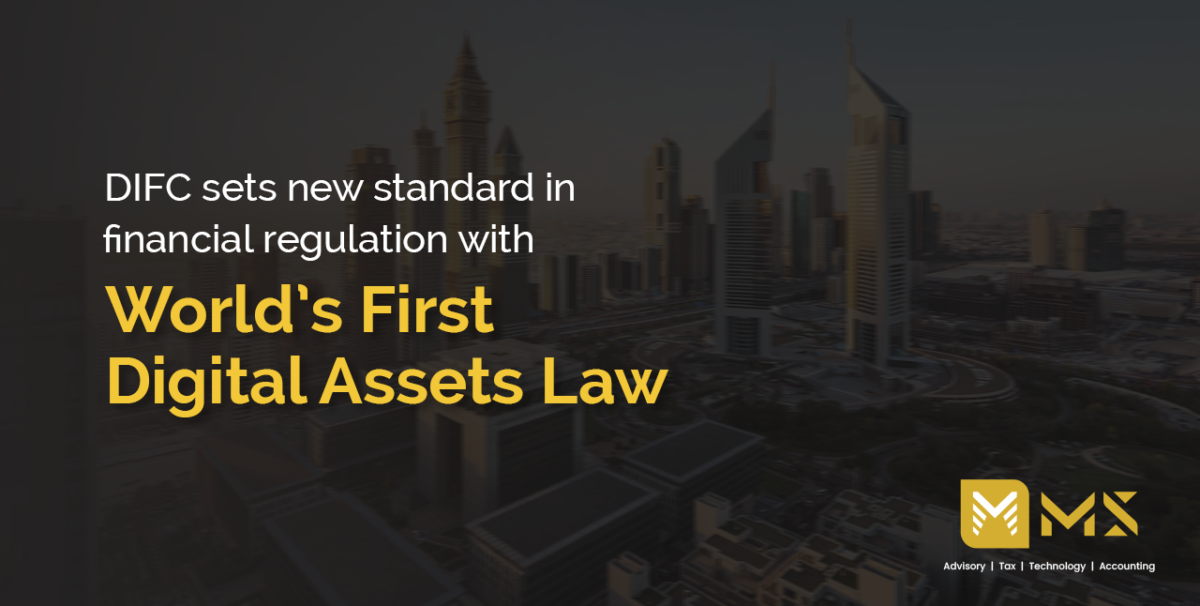In a move that solidifies its position as a global financial powerhouse, the Dubai International Financial Centre (DIFC) enacted the world’s first Digital Assets Law on March 8th, 2024, alongside significant amendments to existing legislation. This landmark legislation, DIFC Law No. 2 of 2024, aims to regulate and provide legal certainty for investors and users of digital assets in the Middle East, Africa, and South Asia (MEASA) region. The change is signaling DIFC’s proactive approach to embracing technological innovation and providing regulatory clarity in the rapidly evolving digital asset landscape.
Why is there a need for regulatory clarity in the rise of Digital Assets in DIFC?
Digital assets have emerged as a trillion-dollar asset class with immense potential for innovation and market opportunities. However, the legal framework surrounding them has been a subject of debate and uncertainty. Recognizing the need to adapt to rapid technological developments, DIFC embarked on an extensive review of legal approaches in various jurisdictions before crafting its own comprehensive Digital Assets Law. The Digital Assets Law addresses fundamental questions regarding the legal nature of digital assets and establishes clear guidelines for their control, transfer, and dealing by interested parties. By enacting this legislation, DIFC aims to provide a robust legal framework that fosters innovation while ensuring investor protection and regulatory compliance.
Any impacts on other existing laws in DIFC?
DIFC has updated existing laws, including the Contracts Law, Law of Obligations, and Law of Security, to accommodate the implications of the new digital assets regime. These amendments reflect DIFC’s commitment to keeping pace with international developments and maintaining a transparent environment for businesses and investors.
“The revised regime is modeled on the UNCITRAL Model of Secured Transactions and significantly enhances DIFC’s securities regime to keep pace with international developments in this field and to ensure DIFC remains at the forefront of best practice.”
Jacques Visser, Chief Legal Officer, DIFC
Electronic Transferable Records
Updates to the Law of Obligations now incorporate provisions for the utilization of electronic transferable records. These records serve as digital counterparts to traditional paper trade documents like bills of lading, bills of exchange, promissory notes, and warehouse receipts. Acknowledging these electronic documents streamlines cross-border digital trade, enhancing the pace and security of document transmission and enabling the automation of specific transactions via smart contracts. Through this, DIFC is embracing technological advancements to streamline business processes.
Digital Assets Law in DIFC: Key Provisions
In conjunction with the Digital Assets Law, DIFC has repealed the 2005 Law of Security and replaced it with a new Law of Security aligned with international best practices according to the UNCITRAL’s Model Law on Secured Transaction. This move enhances DIFC’s securities regime, particularly concerning the taking of security over digital assets, and ensures that DIFC remains at the forefront of global financial standards. The DIFC is also moving towards the repeal of the Financial Collateral Regulations, consolidating the financial collateral provisions into a fresh chapter within the revised Law of Security.
What is in it for the budding digital asset ventures landing in DIFC, Dubai?
DIFC’s enactment of the Digital Assets Law and related legislative amendments marks a significant milestone in the evolution of global financial regulation. Clear regulations in the digital asset sector offer numerous benefits for blockchain technology businesses majorly CRYPTO and NFT. The guidelines reduce ambiguity, providing a solid foundation for businesses while enhancing consumer protection and fostering trust. These guidelines also boost market confidence and attract inward investment, stimulating economic growth and innovation. Proactive regulation aligns with global trends and these frameworks reinforce the DIFC’s global leadership in the digital asset sector, positioning the DIFC as an innovation hub.
